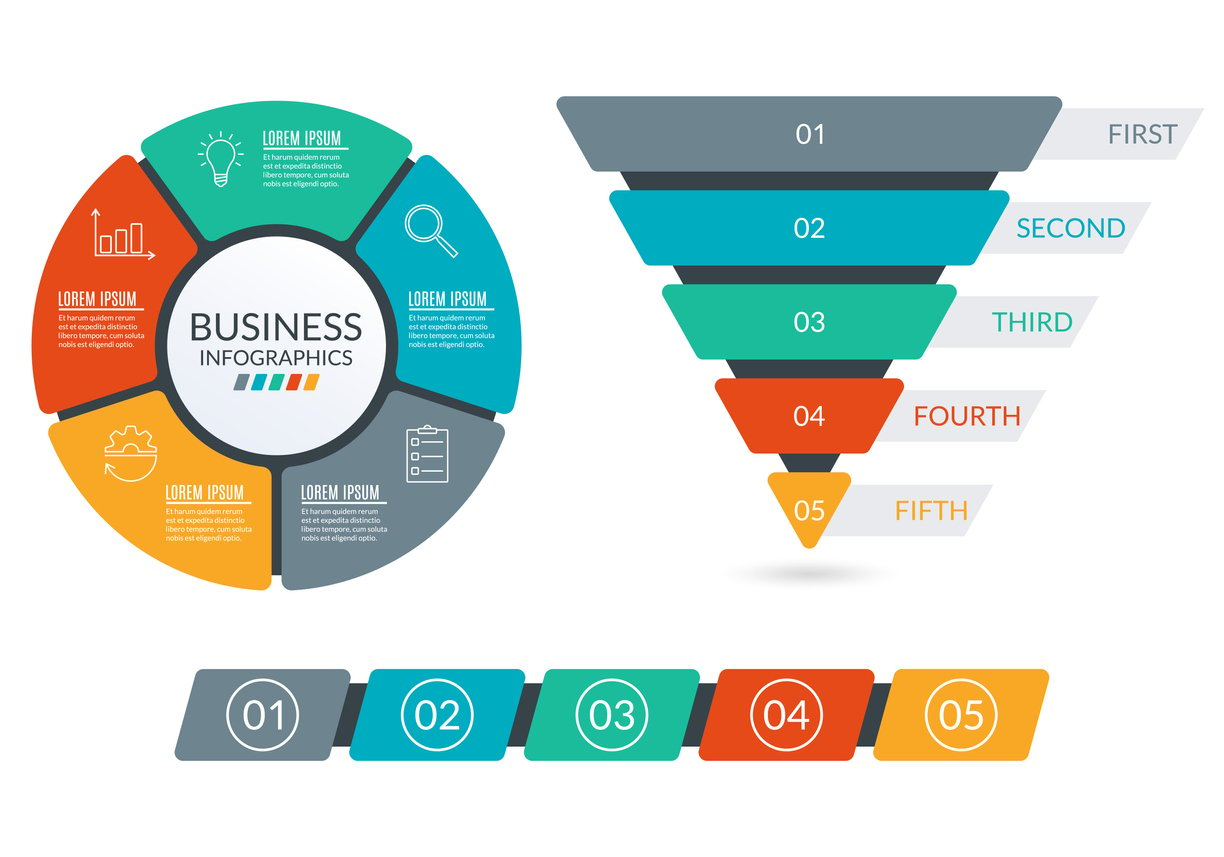
The Ultimate Guide to Operational CRM [Benefits, Features & Challenges]
 Updated on
Updated on
 By Carlos Correa
By Carlos Correa
Carlos Correa
Carlos has been involved in the sales space for well over ten years. He began in the insurance space as an individual sales agent, managing teams as s...
learn more
Carlos Correa
Carlos has been involved in the sales space for well over ten years. He began in the insurance space as an individual sales agent, managing teams as s...
Table of Contents
Table of Contents
Customer relationship management (CRM) software is fundamental to scaling companies to the next level.
However, not all CRM platforms are created equally.
An operational CRM system supports an organization's customer service, marketing, and sales teams. The expansion over various functions makes operational CRM applications the preferred choice for medium to large enterprises.
This guide explores the components of a successful operational CRM system, including its benefits, features, challenges, and more.
Key Takeaways
- An operational CRM is designed to automate and streamline daily customer-facing activities across sales, marketing, and service departments to improve execution and efficiency.
- While operational CRMs focus on high-velocity task execution and real-time workflows, analytical CRMs focus on historical data patterns and predictive modeling to inform long-term strategy.
- Implementing these systems leads to faster lead response times, higher agent productivity, and a more consistent customer experience by eliminating manual data entry and "operational friction."
- Solutions like Ringy bridge the gap between "Strategic" and "Operational" CRM by providing the tools to execute daily tasks while simultaneously surfacing the performance intelligence needed to refine business strategies.
- To overcome common hurdles like user adoption and data accuracy, businesses must prioritize intuitive user interfaces, thorough team training, and seamless integration with their existing tech stack.
What Is an Operational CRM?
Operational CRM is a category of software designed to streamline and automate a company's daily customer-facing activities across sales, marketing, and customer service.
By centralizing data, it ensures that frontline teams have real-time access to client history, allowing for seamless execution of repetitive tasks. This system focuses primarily on optimizing workflows to improve the overall efficiency of customer interactions.
Effective operational customer relationship management bridges the gap between different departments by providing a unified view of the buyer’s journey. CRM operations rely on these tools to handle lead capture, email automation, and help desk ticketing. Modern operational CRM software empowers teams to focus on high-value engagement rather than manual data entry.
By implementing robust operational CRM systems, organizations can scale their CRM operation through standardized sales processes. Ultimately, using a CRM for operations ensures that every touchpoint, from the first marketing email to the final support ticket, is handled with precision and consistency.
How an Operational CRM Works Across Core Business Functions
An operational CRM acts as the engine room for your company, transforming high-level strategies into daily actions. By integrating CRM for operations into your core departments, you ensure that data flows smoothly between teams without manual intervention.
Sales Operations
In the sales cycle, CRM operations focus on moving prospects through the pipeline with speed. The system automates lead capture from web forms, assigns them to the right reps, and triggers immediate follow-ups. Features like call logging and deal tracking provide total pipeline visibility, ensuring no opportunity falls through the cracks.
Marketing Operations
For marketing teams, operational CRM software is essential for executing complex campaign strategies. It manages segmentation and automates drip sequences across email and SMS. This coordination ensures that omnichannel outreach feels personalized and timely, rather than disjointed.
Customer Service Operations
Post-purchase, operational CRM systems streamline case management. By automating ticket routing and providing a unified interaction history, support agents can resolve issues faster. This visibility allows the service team to see exactly what sales and marketing promised the customer.
Why Operational CRM Software Is Critical for Modern Businesses
Currently, speed and precision are the primary drivers of loyalty. Operational customer relationship management moves a business away from fragmented, manual processes toward a high-velocity, automated environment.
The Shift from Manual Processes to Automated Workflows
Relying on spreadsheets leads to "operational friction" and human error. Transitioning to a dedicated CRM operation allows for real-time responsiveness, which serves as a massive competitive advantage. When workflows are automated, teams spend less time on "work about work" and more time on high-impact strategy.
Business Outcomes Enabled by Operational CRM
The implementation of a robust operational CRM yields measurable results:
- Faster Lead Response: Automation ensures leads are contacted in seconds, not days.
- Higher Productivity: Automation handles the data entry, leaving agents free to solve complex problems.
- Scalable Consistency: Whether you have ten customers or ten thousand, the experience remains uniform and professional.
Operational CRM vs. Analytical CRM: Key Differences

Purpose
Operational CRM's main goal is to increase a business's daily operations' effectiveness and efficiency. It emphasizes automating repetitive processes, giving a complete picture of the consumer, and facilitating individualized care and assistance.
Analytical CRM software’s primary goal is to evaluate customer data to raise client retention and happiness. It aids in making better business decisions by using data mining, predictive modeling, and other analytical techniques to find patterns and trends in consumer data.
Data Usage
Operational CRM software utilizes real-time data to support daily CRM operations, such as managing customer inquiries, sales orders, and support tickets. These platforms capture customer interaction data from sources including, but not limited to:
- Phone calls
- Emails
- Chats
- Social media interaction
- Other communication channels
Operational CRM programs provide organizations with a centralized customer information database, enabling them to respond quickly to inquiries while delivering individualized support.
Conversely, analytical CRM platforms identify patterns and trends in customer behavior or preferences using historical and current data. Analyzing prospect demographics, purchasing habits, and other metrics gives sales teams the information they need to improve their strategy. Based on these statistics, analytical CRM software also provides insights into customer behavior, enabling businesses to improve customer satisfaction and retention.
Tools and Techniques
Operational CRM software utilizes tools and techniques such as sales force, marketing, and customer service automation to streamline day-to-day operations.
Sales force automation tools assist sales teams with managing:
- Leads
- Contacts
- Opportunities
Marketing automation tools allow advertising divisions to automate email campaigns, social media outreach efforts, and other marketing activities. For instance, when prospects request information about a particular product, marketing automation can target them with relevant promotional material afterward.
Some things you can do to scale your marketing efforts with marketing automation tools include the following:
- Send leads messages through an automated email or DRIP campaign
- Improve accessibility by organizing marketing collateral
- Reach out to potential customers based on specific triggers
- Target prospects with relevant content that correlates with their position in the sales pipeline
Analytical CRM applications utilize tools and techniques such as data mining, predictive modeling, and customer segmentation to analyze client data. This information helps upper management evaluate the sales team’s performance and locate areas for improvement.
Let’s look at each nuance to understand them better:
- Data mining - Valuable insights are extracted from extensive customer interaction, communication, and behavioral datasets.
- Predictive modeling - Statistical algorithms are utilized to predict future outcomes based on historical data.
- Customer segmentation - Dividing clients into groups based on similar characteristics like age, gender, or purchasing habits gives marketing teams the information they need to create tailored content relevant to a specific audience.
With the tools and techniques utilized by analytical and operational CRM software, it’s clear why medium to large enterprises rely on both technologies to maintain and manage their overall operations.
Focus
Operational CRM software provides a dynamic view of the customer and allows the automation of mundane, routine activities. Companies can reply to consumer concerns promptly because time is freed up thanks to the operational CRM platforms.
Analytical CRM software enhances customer happiness and retention by examining client data to find patterns. Businesses may use the software to better understand consumer behavior and preferences, simplify decision-making, and increase customer contentment.
Strategic CRM vs. Operational CRM: How They Work Together
While operational CRM handles the "how" of daily business, Strategic CRM focuses on the "why." You can think of Strategic CRM as the blueprint for customer success, while your CRM operation is the construction crew that brings that vision to life.
A strategy is only as good as its execution; without the automated workflows of operational CRM software, long-term goals often fail to materialize because frontline teams are bogged down by manual tasks.
When these two work in tandem, the high-level goals, such as increasing customer lifetime value, are translated into specific automated actions within your operational CRM systems. This synergy ensures that every automated email or support ticket response aligns perfectly with the company’s broader mission.
Here are their key differences at a glance:
|
Feature |
Strategic CRM |
Operational CRM |
|
Primary Goal |
Building long-term customer loyalty and value. |
Automating and streamlining daily tasks. |
|
Time Horizon |
Long-term (years). |
Immediate/Short-term (daily). |
|
Core Function |
Strategy development and relationship culture. |
Operational customer relationship management and execution. |
|
User Focus |
Executives and Strategy Leads. |
Sales, Marketing, and Service teams. |
|
Key Output |
Customer-centric business models. |
Efficient CRM for operations and automated workflows. |
By aligning your CRM operations with a clear strategy, you ensure that your team isn't just working faster, but is also moving in the right direction to satisfy the modern buyer.
How Ringy Bridges the Gap Between Strategy and Operations
Ringy serves as a comprehensive platform that harmonizes high-level business goals with the gritty reality of daily customer engagement. By acting as both an execution engine and a strategic command center, it ensures your team is always moving in the right direction.
How Ringy Functions as an Operational CRM
At its core, Ringy is a high-performance operational CRM designed to eliminate the friction that slows down frontline teams. It centralizes the CRM operation into a single, fluid workspace.
- Day-to-Day Execution: Sales calls, SMS, emails, tasks, meetings, and follow-ups are executed directly within the platform, keeping agents focused on the prospect rather than the software.
- Workflow Automation: Features like intelligent lead routing, automated drip campaigns, and proactive reminders reduce manual effort and ensure a standardized operational customer relationship management process.
- Frontline Visibility: Agents have immediate access to contact history, notes, and active conversations, enabling faster and more personalized interactions.
- Omnichannel Engagement: Voice, SMS, and email are unified, making Ringy an ideal CRM for operations by providing a consistent communication thread across all channels.
How Ringy Functions as a Strategic CRM
Beyond execution, Ringy provides the intelligence needed to shape long-term business outcomes. It uses the data from your operational CRM software to inform broader strategy.
- Performance Intelligence: Built-in reporting and dashboards surface critical trends in lead quality, agent performance, and conversion rates.
- Repeatable Strategy Enablement: High-performing messages and sequences can be templated and scaled, turning a single agent's success into a company-wide standard.
- Revenue Insight: Activity data ties daily execution back to financial outcomes, helping leaders identify which operational CRM systems and workflows drive the most revenue.
- Continuous Optimization: Real-time data allows for immediate adjustments to messaging, timing, and staffing, ensuring the strategy remains agile.
Why This Dual Role Matters
Ringy eliminates the traditional gap between strategy formulation and execution. Instead of planning in one system and operating in another, teams use the same environment to:
- Execute customer interactions with precision.
- Measure results immediately through live data.
- Refine strategy based on actual performance.
- Re-deploy improved workflows without friction.
This dual-layer approach makes Ringy a "system of action and learning," perfectly aligning your daily CRM operations with long-term growth.
Benefits of CRM for Operations

When you adhere to all the CRM best practices, the following are some of the benefits an operational CRM delivers.
Improved Customer Service
Clients will only hang around if you can provide them with exceptional service.
That's where CRM platforms fit in!
A centralized database of customer data aids employees in understanding the client's unique requirements and pain points. This information can be shared across an organization, so staff from different departments can access it.
Customer service teams with CRM software can provide well-informed, timely, and reliable client support. They can see what was addressed in a previous interaction and solve issues faster because this data is readily available.
Operational CRM software generates all this information and more, providing customer service teams with a comprehensive view of the client's experience with the enterprise.
This is how incredible customer experiences are created.
Streamlined Operations
Streamlining operations is a no-brainer with operational CRM software. Automate routine tasks, such as data entry, tracking, and reporting to allow your team to concentrate on more important activities.
Sales force automation tools and operational CRM integration help sales teams manage leads, contacts, and opportunities in a single location, making closing deals easier.
Marketing teams may reach more consumers and produce more leads by automating email campaigns, social media campaigns, and other operations using automation technology.
Teams manage inquiries, support requests, and other client contacts using customer service automation systems, allowing them to address issues effectively and promptly. Operational CRM also enables businesses to lower expenses, boost productivity, and raise revenues.
Increased Efficiency
Enterprises can reduce manual errors and improve data accuracy by automating tasks such as responding to clients, tracking interactions, and recording customer replies. Operational CRM platforms provide a centralized customer information database, reducing the time and effort required to manage customer communications.
Operational CRM software also provides real-time data on customers and actions, giving you the ability to track every customer's interaction with your business. Teams improve customer service delivery, tailor products and services to meet customer needs, and generate more leads and sales with this information.
Improved Customer Data Management
With a centralized customer database, sales teams can manage prospects and clients more effectively. Operational CRM platforms capture details about customer interactions, including phone calls, emails, chats, and social media interactions, providing companies with analytics to add to their consumer database.
Dividing customers into groups based on similar characteristics, such as age, gender, or purchasing habits, makes creating targeted content easier. Improved customer satisfaction and loyalty are positive spin-offs of personalized marketing outreach efforts.
Operational CRM software gives enterprises the CRM tools to track customer feedback, complaints, and requests to recognize and address problems promptly, boosting various business areas.
Increased Revenue
When organizations concentrate on improving customer loyalty and satisfaction, the chances of repeat business and referrals increase significantly. If implemented correctly, operational CRM software allows businesses to lower costs, boost productivity, and raise earnings.
With improved customer data management, companies can better satisfy consumer demands by customizing their solutions to meet those needs.
Key Features of Operational CRM Systems

Contact Management
This is a critical feature of operational CRM systems, letting businesses manage their customer database by tracking contact information. Users can keep track of customer interactions, including but not limited to:
- Sales calls
- Emails
- Meetings
Contact management enables businesses to segment their customer base based on demographics, buying patterns, and other factors. This categorization allows companies to personalize marketing strategies to specific customer groups to boost engagement and sales.
Lead Management
An operational CRM must have lead management features to remain functional. Businesses must be able to generate and track leads to be successful. Lead management features include
- Capturing
- Searching
- Nurturing
- Scoring
Capturing leads is imperative for any company looking to grow. With operational CRM software, you can obtain leads from various sources, including email marketing campaigns, social media, or website forms, and identify ways to bring the prospect into the sales funnel.
Once in the funnel, operational CRM lead tracking features allow sales teams to track prospects as they move through the sales funnel from first contact to closing the deal. During this period, representatives can cultivate relationships with customers by providing them with personalized, relevant communications and marketing material.
Depending on the operational CRM selected, you may be able to score leads based on specific triggers or potential value, helping your sales team to prioritize sales efforts. This streamlines business processes further by highlighting leads with the greatest chance of closing or those that already repeat buy.
Sales Management
What would an operational CRM platform be without sales management tools? Not much, we think!
Sales management is a key feature of operational CRM systems. Businesses can manage their sales pipeline, from lead generation to closing deals.
Sales management offers features to handle the following:
- Pipelines
- Sales forecasts
- Sales opportunities
- Customer quotes
Tracking the details of each prospect throughout their journey in the sales funnel can help teams figure out which prospects are worth investing more time in and which are not. Operational CRM applications offer all the tools needed to manage leads, whatever their connection to the company.
By utilizing market trends and historical data with operational CRM software, businesses can predict future sales or revenue. This is perfect for production planning or arranging the organization’s budget for future financial endeavors.
Any prospect in the sales pipeline is seen as a potential customer and should be treated accordingly. When companies have the opportunity to manage tools, they can arrange leads relevant to their importance. From there, sales teams can create and manage quotes by sending them directly to their client through the operational CRM software’s dashboard.
Marketing Automation
Organizations can evaluate and automate marketing tasks to expedite sales growth. You can create customized automated promotional campaigns that meet the preferences of your target audience perfectly with operational CRM software.
With customer-centric data, sales teams can leverage the power of personalized outreach efforts.
Design your campaigns the way you want with operational CRM’s campaign management features by selecting particular communication mediums, allocating a budget, and evaluating the campaign’s effectiveness.
Customer Service Management
With this tool to provide the highest quality customer support, there’s no excuse not to improve your game. Operational CRM software allows agents to leverage interaction history to provide timeous services for client requests, problems, or questions.
Every department across your business will benefit significantly by providing customer information to all staff in the organization. This results in customer complaints getting resolved in a shorter time than usual. Moreover, client service requests can also be delegated to specific employees.
Challenges in Implementing Operational CRM

Integration with Existing Systems
Integrating operational CRM applications with current systems is one of the major barriers enterprises confront.
Many businesses already use software to manage client data, such as accounting and inventory control programs, that may not work with the new CRM system.
Solve this problem by deciding on an operational CRM software compatible with existing programs in your tech stack or by creating a customized integration strategy that guarantees accurate and consistent data.
Data Accuracy and Completeness
An operational CRM program's effectiveness depends on the quality and accuracy of its data.
Companies with comprehensive, accurate, and relevant data use an operational CRM to get the best results. To guarantee the data they gather is correct and complete, organizations must ensure that the information they collect is current. A good rule of thumb is implementing a data quality policy to ensure this, such as data cleaning and standardization and adequately training system users.
User Adoption
A significant issue firms have while putting operational CRM systems in place is user acceptance. Many workers can be reluctant to adopt a new system, especially if they are accustomed to utilizing current software solutions.
The table below highlights additional user adoption challenges companies may encounter:
|
Challenge |
Explanation |
|
Lack of CRM support from service provider |
Without adequate support resources, such as a dedicated customer service team, troubleshooting documentation, or knowledgebase, users may struggle to get answers to their queries or resolve internal problems, leading to frustration and reduced adoption rates. |
|
Mediocre user experience |
An intuitive user interface is essential for improving user adoption. If teams find the software cumbersome to work with, they may be hesitant to continue utilizing the software |
|
Data quality concerns |
Users may be unsure of data’s usefulness or accuracy, leading to them being hesitant to input new information into the system. This can result in incomplete or faulted datasets. |
Employee participation in the implementation process and thorough training and assistance may alleviate these issues. Ensuring workers’ feedback is incorporated into the CRM integration strategy helps businesses increase adoption rates.
Cost of Implementation
The cost of implementation is a challenge businesses face when adding an operational CRM platform to their tech stack. Implementing an operational CRM system requires a considerable investment in software licenses, hardware, and implementation services.
Companies can jump over this hurdle by selecting an operational CRM software offering flexible pricing models, such as pay-as-you-go or subscription-based pricing, and by working with a vendor that provides affordable implementation services. Cloud-based CRM solutions are also excellent ways to reduce the cost of getting started with customer relationship management.
Continuous Improvement and Updating
Keeping operational CRM systems current and continuing to serve the needs of the business over time is the final hurdle corporations encounter.
The solution to this problem is to put in place a procedure for ongoing improvement and upgrading, such as frequent system updates or upgrades, ensuring employees are taught new system features and capabilities.
Final Thoughts - Operational CRM
Implementing an operational CRM system is crucial for businesses to stay competitive and meet the needs of their customers.
The advantages are undeniable, from improving customer service to increased revenue. However, companies must also navigate the challenges of implementing such a system, including integration with existing applications, data accuracy, user adoption, cost of implementation, and continuous improvement.
But fear not!
There is a solution that can make life easier and your business thrives: Ringy. With its top-notch features, such as contact management, lead management, sales management, and integration with marketing automation tools, Ringy has got you covered.
So, if you want to streamline your operations, increase efficiency, and boost your revenue, request a demo today!

Skyrocket your sales with the CRM that does it all.
Calling? Check. SMS? Check. Automation and AI? Check. Effortlessly keep in touch with your customers and boost your revenue without limits.

Take your sales to new heights with Ringy.
Sales in a slump? Ringy gives you the tools and flexibility you need to capture leads, engage with them, and turn them into customers.
Subscribe to Our Blog
Enter your email to get the latest updates sent straight to your inbox!
Categories
Related Articles




































































































